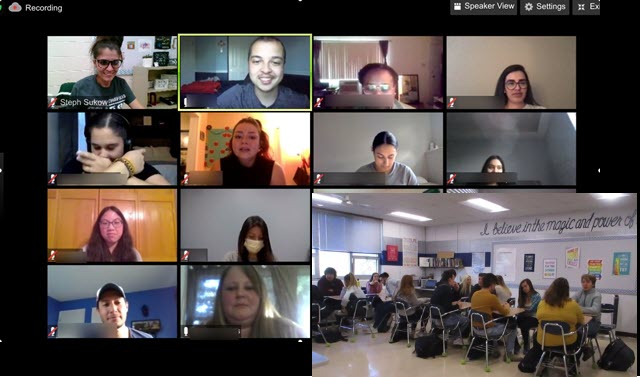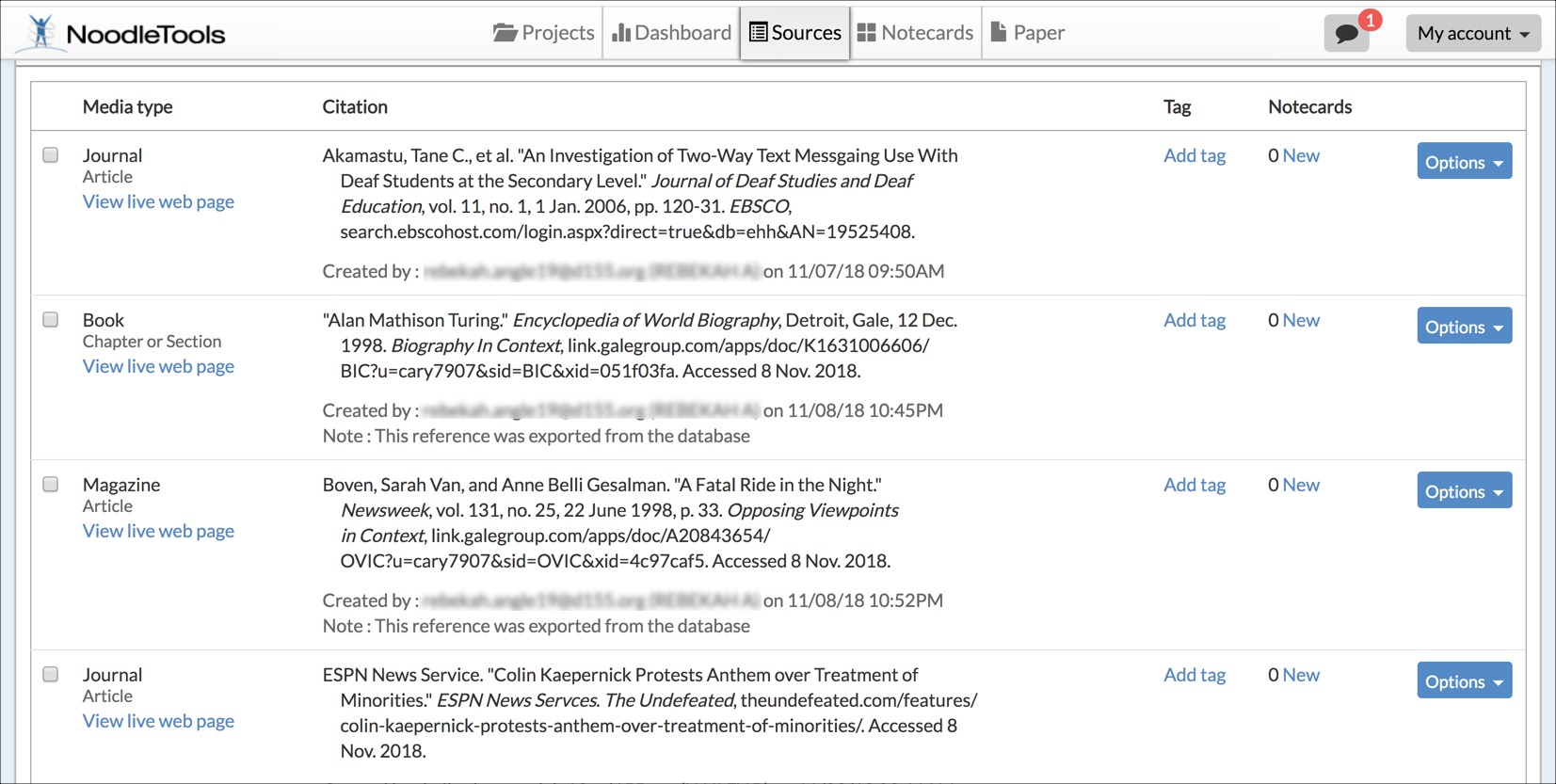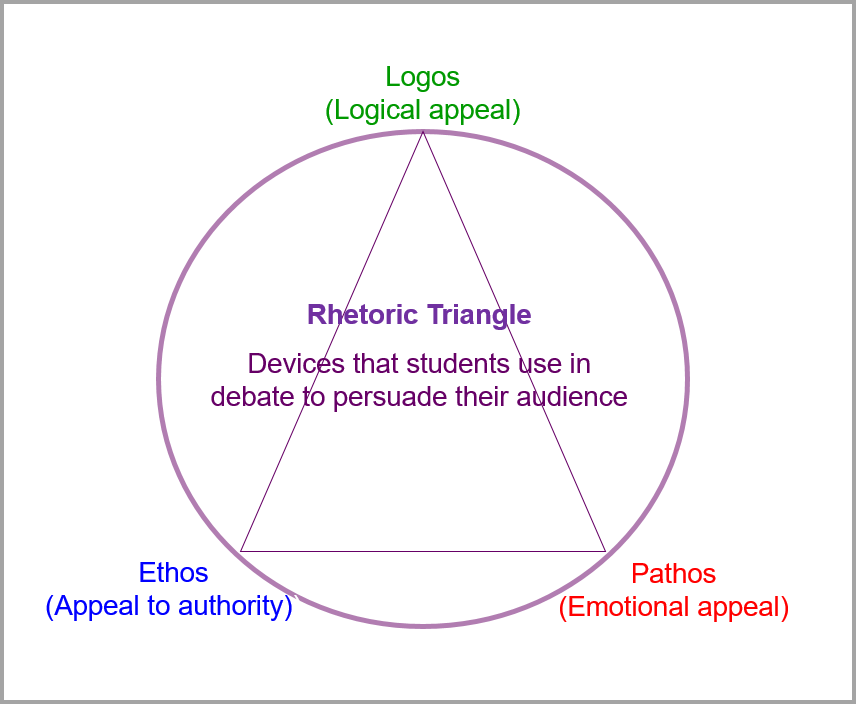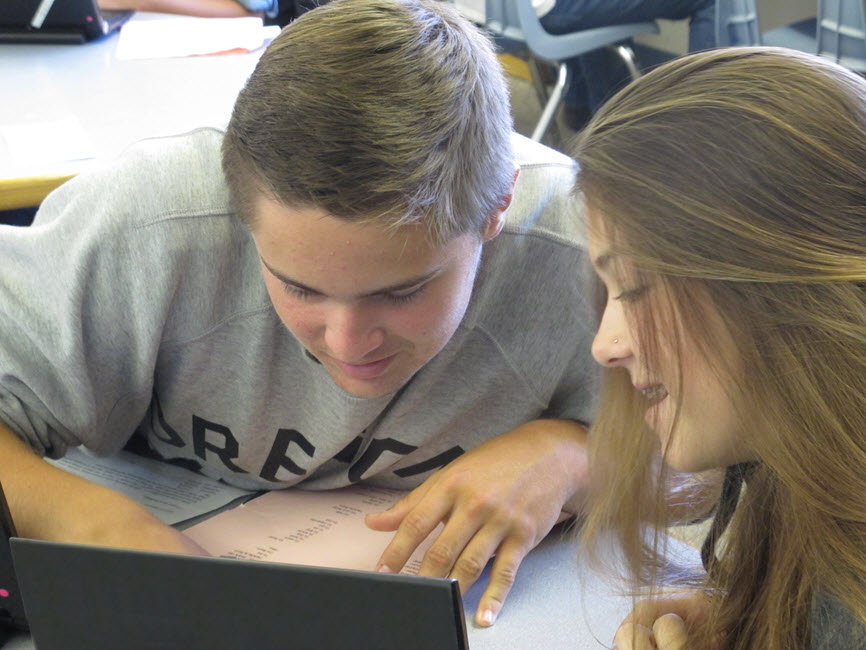
Steph Sukow, an English and Speech teacher at Cary-Grove High School (IL), works with 12th graders on their group debate speeches as part of a persuasion unit. She teaches students to augment their rhetorical appeals by refining the ethos, pathos and logos of their arguments.
Setting up Student Collaboration

Stephanie divides her class into two groups, each of which has a shared project in NoodleTools. She values the technology because it helps “unify the teams, create standard definitions, and share information.” The transition to online debate research has been seamless.

Rhetorical Triangle

Once students have a grasp of their topic, they are ready to engage in debate and discussion. In Thank You for Arguing, Jay Heinrichs argues that one must do more than inform an audience in order to move them to action. Therefore Stephanie teaches her debaters to cultivate and exploit identity strategies such as “master[ing] the codes of your audiences” (228). Students learn to select “code grooming” language that builds trust with their audience, so that their appeals to ethos, pathos and logos have maximum persuasive impact.
From Research to the Art of Persuasion
Debate teams use online breakout rooms to develop engaging research questions such as:
- Does technology make us more connected or more isolated?
- Should we continue to rely on artificial intelligence or is it detrimental to our society?
- Within the 16-21 age group, who is more “coachable” — males or females?
Her flipped and real-time mini-lessons support skills needed in debate:
- To evaluate the strength and credibility of sources
- To provide strong evidence in support of a claim
- To work collaboratively in teams.
Video Documentation and Reflection
Stephanie has built a collaborative relationship with a teaching partner that takes advantage of their complimentary strengths. In a YouTube video, you can see them giving online feedback to 3rd-period debate teams over the course of three days. Their free exchange of ideas results in effective feedback to students about common goals including:
- Clearly organized and articulated claims
- Supported by verifiable evidence and meaningful quotes
- Communicated through active listening and appropriate responses.
Stephanie’s passion for her subject is evident: “In a turbulent political climate and a world in which our leaders cannot respectfully listen to perspectives that differ from their own agendas, these communicative skills are more crucial than ever!”
In the video wrap-up, Stephanie and her coteacher acknowledge the growth they’ve observed in students, as well as their own instructional challenges. Her empathy for her students’ struggles with time management, organization and group work shine through these reflections. The video closes with a moving affirmation of each student’s potential.
"The power of their words and relationships"
School has opened virtually this fall and Stephanie is teaching public speaking using Zoom and in asynchronous formats like Flipgrid. The block schedule has been a boon — extended periods of time for breakout discussions, guided practice, and reflective conversations.
Stephanie is proud of her students’ resilience and adaptability: “They’re learning to express themselves in unique ways on social media platforms, in letter writing and email.”
In spite of the occasional frozen screen, they’re able to create powerful messages about issues that matter to them…their patience, preparation and determination are evident as they research, read and learn about what is happening in the world and its relevance to their lives.
In addition to telling their own stories, she is challenging students to read others’ stories and incorporate them in their speeches in preparation for the speech team competition later this year.
Stephanie and her students are eager to return to the classroom when it’s safe. Until then she is confident that the lessons they’re learning about communication and connection are timeless. “I love hearing and seeing new forms of growth in my students, of course, but I am also proud of their continuing recognition of the power of their words and relationships — whether online or face to face.”
Subscribe to Stephanie Sukow’s blog “Reflections of an English and Speech Teacher” or follow her on Twitter @Steph_Sukow. For questions about speech and debate, contact her by email: ssukow@d155.org.
